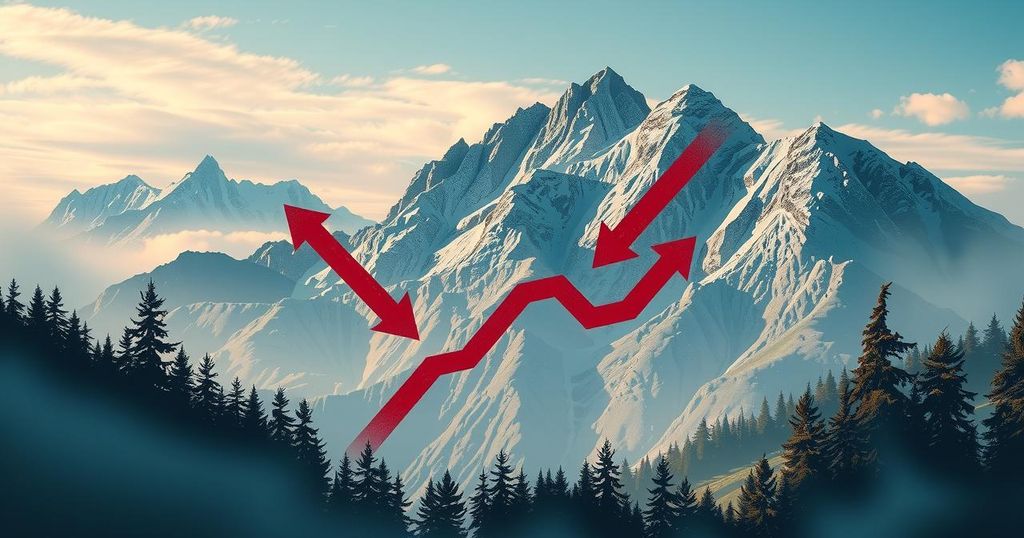M23 Rebels Capture Bukavu, Escalating Conflict in DR Congo
M23 rebels supported by Rwanda have seized control of Bukavu, succeeding after previously taking Goma. The local population reacted with a mix of fear and support as Congolese troops withdrew to prevent urban warfare. This takeover has resulted in chaos, looting, and increasing concerns over a potential regional war, prompting international calls for intervention and accountability.
Rwandan-backed M23 rebels have entered Bukavu, the second-largest city in eastern Democratic Republic of Congo, marking a significant escalation of their recent campaigns. The rebels seized control of the regional governor’s office and were welcomed by some residents who lined the streets to cheer them as they entered the city center without encountering resistance. Bukavu is now the second city, after Goma, to fall to the rebels in just the past few weeks, illustrating the growing instability in this mineral-rich region.
The Congolese government has acknowledged the situation in Bukavu, urging residents to remain indoors to avoid confrontation with the occupying forces. The recent offensives have forced hundreds of thousands of individuals to flee their homes, raising concerns from the United Nations and European countries about the potential for a broader regional conflict due to these developments.
One resident, speaking anonymously for safety reasons, reported widespread fear among the population, stating, “Since yesterday the children and the youth took the weapons. They are shooting everywhere in all directions, they are looting.” The chaos in Bukavu has been compounded by gunfire still echoing in the city, with reports of looting and violence following the M23’s takeover.
As the M23 captured key locations including the main airport about 30 kilometers north of Bukavu, the provincial governor confirmed the rebels’ presence in the city by Sunday morning. To avoid urban combat, Congolese troops withdrew, creating an immediate security vacuum that led to chaotic scenes, including a prison break and looting of a warehouse containing nearly 7,000 tonnes of food.
Bukavu, home to approximately two million individuals, plays a critical role in the local mineral trade and shares a border with Rwanda. Its fall represents a significant territorial gain for the M23 since their resurgence in late 2021 and inflicts a blow to President Félix Tshisekedi’s government, who has accused Rwanda of expanding its influence at the cost of Congolese sovereignty.
Government spokesman Patrick Muyaya expressed concerns over Rwandan actions, noting violations of DR Congo’s territorial integrity and human rights abuses. He has called for sanctions against Rwandan President Paul Kagame amid tensions arising from this conflict, although President Kagame has dismissed such threats, emphasizing that Rwanda prioritizes its national security due to perceived threats from Congolese rebel factions.
The M23 commanders have expressed intentions to secure the area, even as fighting continues. Commander Bernard Byamungu was filmed engaging with locals, urging government forces to surrender, accusing them of instigating violence through armed youths. The African Union reiterated calls for the M23 to disarm amidst fears of an escalating regional conflict.
The ongoing situation in Bukavu illustrates the complex interplay of local and regional forces contributing to instability in the Democratic Republic of Congo, and urgent calls for intervention and resolution persist from both national and international entities.
The recent takeover of Bukavu by Rwandan-backed M23 rebels signifies a worrying escalation in the ongoing conflict in the Democratic Republic of Congo. As the Congolese government struggles to maintain order and safeguard its population from the consequences of foreign-backed insurgencies, the international community remains concerned about the broader implications of this conflict. Continuous recommendations for disarmament and sanctions highlight the urgency of stabilizing the region and addressing the root causes of unrest.
Original Source: www.bbc.co.uk




Post Comment